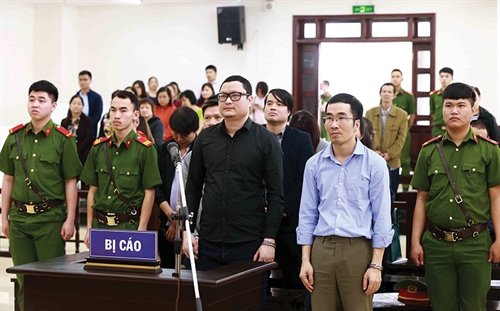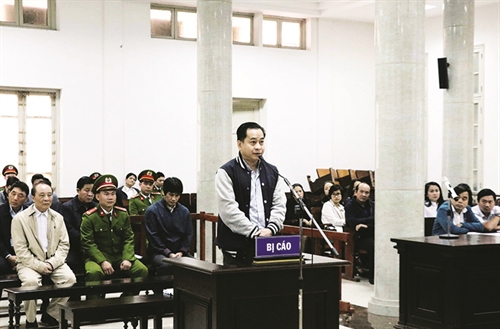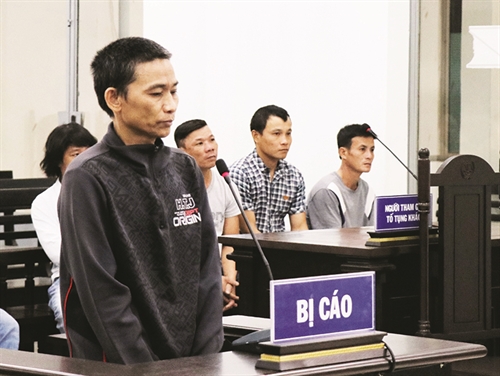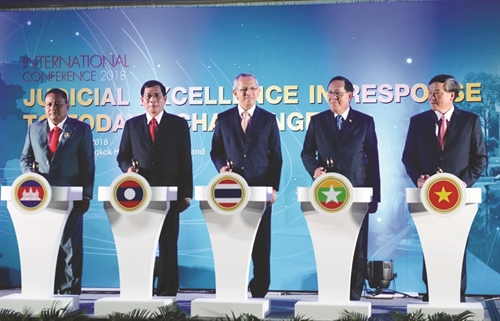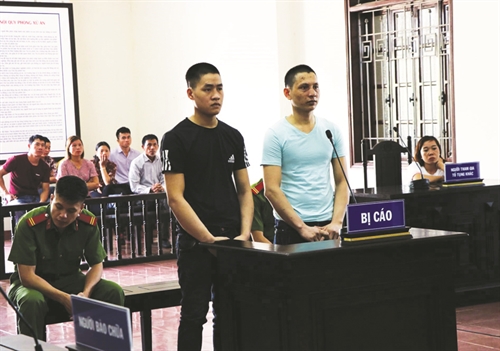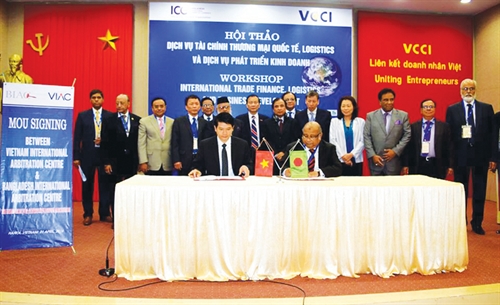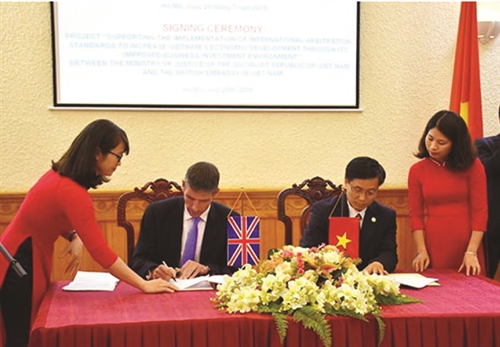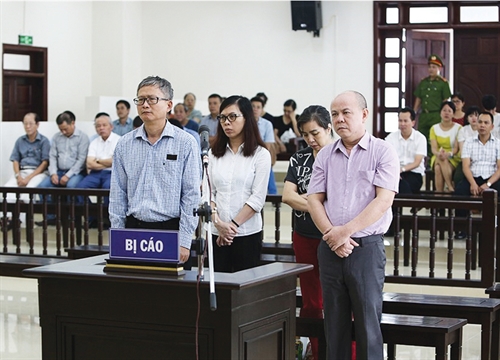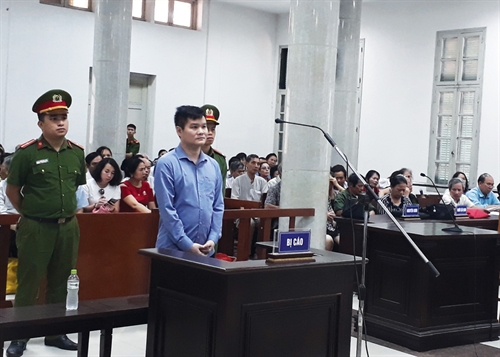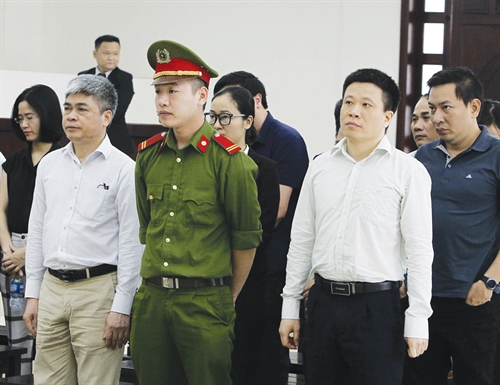Mai Thanh Hieu[1]
Lecturer, Hanoi Law University
First-instance jurisdiction to hear criminal cases where defendants are commercial legal persons is determined by the reason of the matter involved, the person concerned or the place. This article analyses the 2015 Criminal Procedure Code’s provisions on the penal liability examination procedures and first-instance jurisdiction to try commercial legal persons and propose revisions to Vietnam’s current criminal procedure law in this regard.
First-instance jurisdiction by the reason of the matter involved (ratione materiae)
The jurisdiction by reason of the matter involved of first-instance courts to try criminal offenses of commercial legal persons as provided in the 2015 Criminal Procedure Code (the Code) depends on the scope of penal liability to be borne by commercial legal persons. A limited scope of penal liability to be borne by commercial legal persons results in a limitation on the first-instance trial jurisdiction by reason of the matter involved. In other words, courts may only try commercial legal persons for committing one or more of the 33 offenses specified in Article 76 of the Code.
This jurisdiction also depends on the nature and danger to the society of offenses and complexity of criminal cases. For instance, cases involving an offense of violating regulations on research, exploration and exploitation of natural resources[2] are to be heard by provincial-level courts or military zone-level military courts for its complicated nature, no matter it is a less serious or serious offense[3]. Criminal cases involving other offenses may be heard by provincial-level courts or military zone-level military courts or district-level courts or regional military courts under the general provisions[4].
The general provisions on first-instance trial jurisdiction applicable to individuals may also be applied to commercial legal persons. For a case involving an offense falling within the scope of penal liability to be borne by commercial legal persons but not falling under its trial jurisdiction, the court must return the case file to the procuracy that has made the prosecution for transfer to the procuracy with proper prosecuting competence[5].
The court may try a commercial legal person for another offense equally serious or less serious than the one for which such entity is prosecuted by the procuracy if that offense falls within the scope of penal liability to be borned by commercial legal persons[6]. If deeming it necessary to try a commercial legal person for an offense more serious than the one for which it is prosecuted by the procuracy which falls within the scope of penal liability to be borne by commercial legal persons and under its trial jurisdiction, the court should return the case file to the procuracy for re-prosecution and clearly notify the reason to the defendant or its representative and defense counsel. If the procuracy still sticks to the offense for which it has prosecuted the defendant, the court may try the defendant for the more serious offense[7].
At the stage of trial preparation, if there is a ground to believe that in addition to the criminal act prosecuted by the procuracy, the accused has committed another act falling within the scope of penal liability of commercial legal persons, the presiding judge may issue a decision to return the case file to the procuracy for additional investigation[8].
In addition to the above general provisions, Article 443.2 of the Code has a special provision applicable only to legal persons. This provision says that the court may rule to cease the criminal case or decide the status of the accused or defendant of a legal person in case it deems that there is no offense committed or the act of the legal person does not constitute an offense. Compared to individual defendants, the presiding judge may rule to cease the criminal case only when the procuracy withdraws the whole of its prosecution decision before the hearing starts[9] and if there is a ground to believe that no offense is committed or the defendant’s act does not constitute an offense, the trial panel has to declare the defendant innocent[10].
We do not think this special provision is reasonable for several reasons. First, at the stage of trial preparation, the decision of the presiding judge that no offense is committed or the legal person’s act does not constitute an offense is based merely on his/her own study of the case file, while the investigation body and procuracy, through the initiation of the criminal case, investigation and prosecution, have unanimously agreed that an offense is committed or the legal person’s act does constitute an offense. Second, the presiding judge would rather decide to try the case so that the trial panel can make the final conclusion after studying the case file and holding the adversarial process and judgment deliberation. Third, the affected legal person needs a judgment of its innocence rather than a ruling to cease the case.
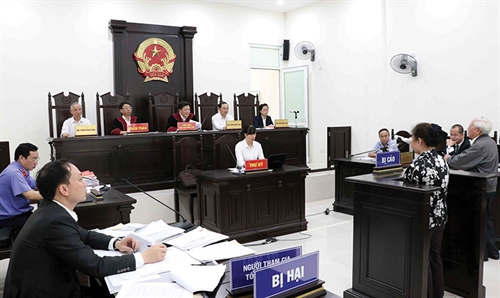 |
| A first-instance trial held on April 4-5 in Hanoi for defendant Nguyen Phuong Mai, chairwoman of the Management Board of Hanoi urban architecture consultancy Co. Ltd.__Photo: Van Diep/VNA |
First-instance jurisdiction by the reason of the person concerned (ratione personae)
The jurisdiction by reason of the person concerned of first-instance courts to try offenses of legal persons as provided in the Code depends on the status of legal persons. Vietnam’s criminal procedure law prescribes the penal liability of commercial legal persons only, which, as defined in Article 75 of the 2015 Civil Code, include enterprises and other economic institutions that operate mainly for profit. Those other than commercial legal persons cannot face criminal charges for the acts specified in Article 76 of the 2015 Penal Code.
Defendants that are commercial legal persons not managed by the People’s Army fall under the trial jurisdiction of people’s courts. They may be tried by military courts only in criminal cases involving military secrets, causing harms to the life, health, honor or dignity of active military personnel, defense workers or reserve military personnel, causing damage to the property, honor or reputation of the People’s Army, or involving offenses committed within military barracks or military zones managed and guarded by the People’s Army or in localities placed under martial law[11].
Defendants that are commercial legal persons managed by the People’s Army naturally fall under the trial jurisdiction of military courts. However, Article 272.1.a of the Code stops short at providing the trial jurisdiction of military courts with regard to individual offenders. So, this Article should be added with provisions on the trial jurisdiction of military courts over defendants that are commercial legal persons or military personnel as well as militia and self-defense forces’ members and citizens working for the People’s Army.
A first-instance court may try commercial legal persons and their offenses for which they are prosecuted by the procuracy and decided by the court to be brought for trial[12]. If there is a ground to believe that there is another accomplice or another person committing an act related to the case which is prescribed by the Penal Code as an offense for which a criminal case has not yet been initiated or criminal proceedings have not yet been initiated against the accused, the first-instance court must return the case file for additional investigation[13].
Courts may only try commercial legal persons through their at-law representatives who are individuals and have the capacity to act as proceeding participants prescribed in Article 55 of the Code. An at-law representative of a commercial legal person may be appointed by itself or by the body competent to conduct the criminal proceedings in some special cases.
In principle, commercial legal persons are allowed by the criminal procedure law to take the initiative in appointing their at-law representatives and ensure their participation in the criminal proceedings. If its at-law representative is involved in a criminal case, investigated, prosecuted or tried, a commercial legal person has to appoint another to participate in the criminal proceedings[14]. This is because such at-law representative is no longer qualified (as he may be held in custody or detained) and might have rights and interests conflicting with those of the commercial legal person. Vietnam’s criminal procedure law does not accept authorized representatives of commercial legal persons to participate in the criminal proceedings.
Article 434.1 of the Code also specifies two cases when the body competent to conduct the criminal proceedings appoints an at-law representative for a commercial legal person facing a criminal charge. In the first case, if the commercial legal person has multiple at-law representatives, the competent body may appoint one among such representatives to represent the commercial legal person to participate in the criminal proceedings. In the second case, at the time of initiation, investigation, prosecution or trial of the criminal case, if the commercial legal person has no at-law representative (possibly because such representative is dead or has absconded), the competent body has to appoint a person to act as the at-law representative for it. However, the criminal procedure law remains silent about criteria of an at-law representative and the legal nature of an appointment decision (whether such decision can be complained or appealed against).
There is a common view that a to-be-appointed at-law representative of a commercial legal person must be a member of its management or executive board or an operation section head who is knowledgeable about and responsible in some way for the operation of the legal person. This view, however, fails to take into account the willingness of such person to represent the commercial legal person in the criminal proceedings.
A hearing to try a commercial legal person can only be held in the presence of its at-law representative[15]. In return, its at-law representative is obliged to be present in response to the court’s summons. If he is absent without a force majeure or reasonable reason, he may be escorted to the court[16].
In our opinion, an amendment should be made to Article 290.2 of the Code to allow commercial legal persons to be tried in absence of its at-law representative in some specific circumstances.
First-instance jurisdiction by the reason of the place (ratione loci)
The jurisdiction by reason of the place of first-instance courts to try offenses of legal persons as provided in the Code depends on where legal persons commit offenses or are headquartered or have their branches. This type of jurisdiction helps facilitate the settlement of criminal cases and effectively prevent and combat crimes in localities.
The court having jurisdiction to try a criminal case involving an offense committed by a commercial legal person is the court in the locality where such corporate offender commits the offense[17]. This provision is consistent with the provision on the competence to investigate offenses committed by individuals: “Investigation bodies are competent to investigate criminal cases involving offenses committed in their respective localities.”[18]
For an offense committed in different localities, the court having jurisdiction to try it is the court in the locality where the head office or a branch of the charged commercial legal person is located[19]. An offense committed in different localities is understood as a repeatedly committed offense, multiple offenses or an offense committed through multiple acts in different localities.
Vietnam’s criminal procedure law provides the jurisdiction by the reason of the place with regard to only commercial legal persons but not both individuals and commercial legal persons in the same criminal case. This is a failure to encompass the spirit of Article 75.2 of the 2015 Penal Code that the bearing by a commercial legal person of penal liability does not exclude the penal liability of related individuals and that the trial of commercial legal persons and individuals in the same criminal case must ensure the thorough (in globo) settlement of the case.
Thus, a more inclusive jurisdiction by the reason of the place with regard to commercial legal persons is needed. Specifically, in case it is impossible to identify the locality(ies) where an offense is committed or an offense is committed in many localities, the jurisdiction to try both the commercial legal person and individuals in the same criminal case should rest with the court of the locality where the individuals reside or are arrested. Joinder of criminal cases to facilitate investigation and prosecution against commercial legal persons and individuals in the same criminal case should also be considered.-
